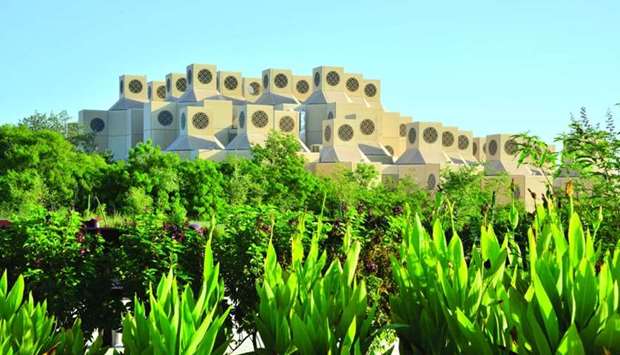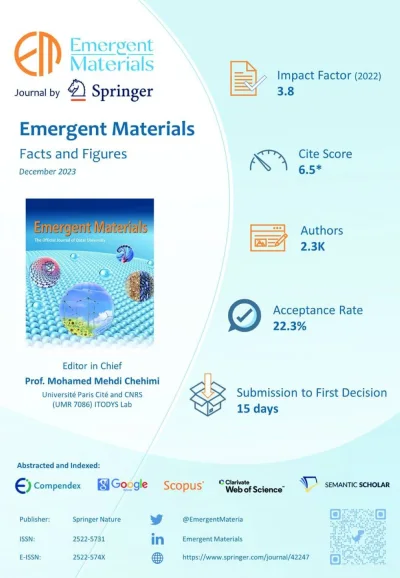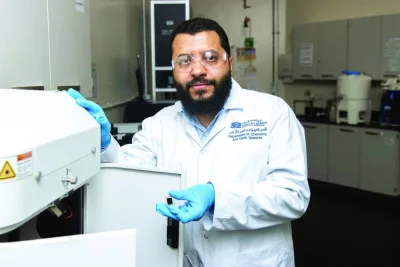Qatar University (QU) has announced that Emergent Materials (EM), a multi-disciplinary journal founded by QU and published by Springer Nature, has been indexed in major databases, notably in Scopus.
Scopus is the largest abstract and citation database of peer-reviewed literature: scientific journals, books, and conference proceedings. Scopus delivers a comprehensive overview of the world's research output in the fields of science, technology, medicine, social sciences, arts and humanities, featuring smart tools to track, analyse and visualise research.
Furthermore, EM previously has been indexed by Web of Science after assessing the quality, number, and characteristics of papers published. Web of Science is a popular platform used to search literature and forms databases to support the world's most trusted citation index for scientific and scholarly research.
EM aims to be responsible for providing a publication source to the growing community of materials scientists - chemists, engineers, physicists, and researchers who are involved in doing innovative research in materials science and engineering. The goal is to publish a series of high-quality and high impact research articles that reflect and bring the best research in the field of physics, chemistry, biology, and engineering of advanced materials, by conveying these to the forefront and to the international research community.
The founder of the journal, Prof Mariam Ali al-Maadeed, vice-president, research and graduate studies, said, "The progress in this magazine reflects the general strength and high quality of research administration and output at QU. The current international collaboration and involvement of scholars locally and internationally show that Qatar University can lead in the international scientific community with a powerful impact."
Editor-In-Chief, Karim Alamgir, Dow Chair Professor, University of Houston, US, noted, "We have great news for the scientific community - EM is now Scopus indexed. This is indeed a reflection of the first-rate papers that were published in the last two years, and we wish to thank the many authors for their high-quality papers that have contributed to this success story. We hope they will continue to publish their best research in EM and encourage their peer colleagues to do so as well."
"We are delighted to announce that Emergent Materials Journal has been accepted into Elsevier's international indexing database, Scopus. This marks an important milestone in the history of the journal. The indexing in Scopus is of vital importance for the scientific journal as it is a way of reaching the readers at universities worldwide," Dr Kishor Kumar, managing editor added.
QU has constantly invested in strengthening infrastructure support for materials research. There are more than 100 faculty members and researchers conducting research in materials and nanotechnology areas. The prime motto of the Emergent Materials journal is to encourage the indigenous and international researchers to work on science problems that serve global industrial, scientific and technical needs and establish QU on the global map of development in this direction.
Furthermore, EM previously has been indexed by Web of Science after assessing the quality, number, and characteristics of papers published. Web of Science is a popular platform used to search literature and forms databases to support the world's most trusted citation index for scientific and scholarly research.
EM aims to be responsible for providing a publication source to the growing community of materials scientists - chemists, engineers, physicists, and researchers who are involved in doing innovative research in materials science and engineering. The goal is to publish a series of high-quality and high impact research articles that reflect and bring the best research in the field of physics, chemistry, biology, and engineering of advanced materials, by conveying these to the forefront and to the international research community.
The founder of the journal, Prof Mariam Ali al-Maadeed, vice-president, research and graduate studies, said, "The progress in this magazine reflects the general strength and high quality of research administration and output at QU. The current international collaboration and involvement of scholars locally and internationally show that Qatar University can lead in the international scientific community with a powerful impact."
Editor-In-Chief, Karim Alamgir, Dow Chair Professor, University of Houston, US, noted, "We have great news for the scientific community - EM is now Scopus indexed. This is indeed a reflection of the first-rate papers that were published in the last two years, and we wish to thank the many authors for their high-quality papers that have contributed to this success story. We hope they will continue to publish their best research in EM and encourage their peer colleagues to do so as well."
"We are delighted to announce that Emergent Materials Journal has been accepted into Elsevier's international indexing database, Scopus. This marks an important milestone in the history of the journal. The indexing in Scopus is of vital importance for the scientific journal as it is a way of reaching the readers at universities worldwide," Dr Kishor Kumar, managing editor added.
QU has constantly invested in strengthening infrastructure support for materials research. There are more than 100 faculty members and researchers conducting research in materials and nanotechnology areas. The prime motto of the Emergent Materials journal is to encourage the indigenous and international researchers to work on science problems that serve global industrial, scientific and technical needs and establish QU on the global map of development in this direction.



